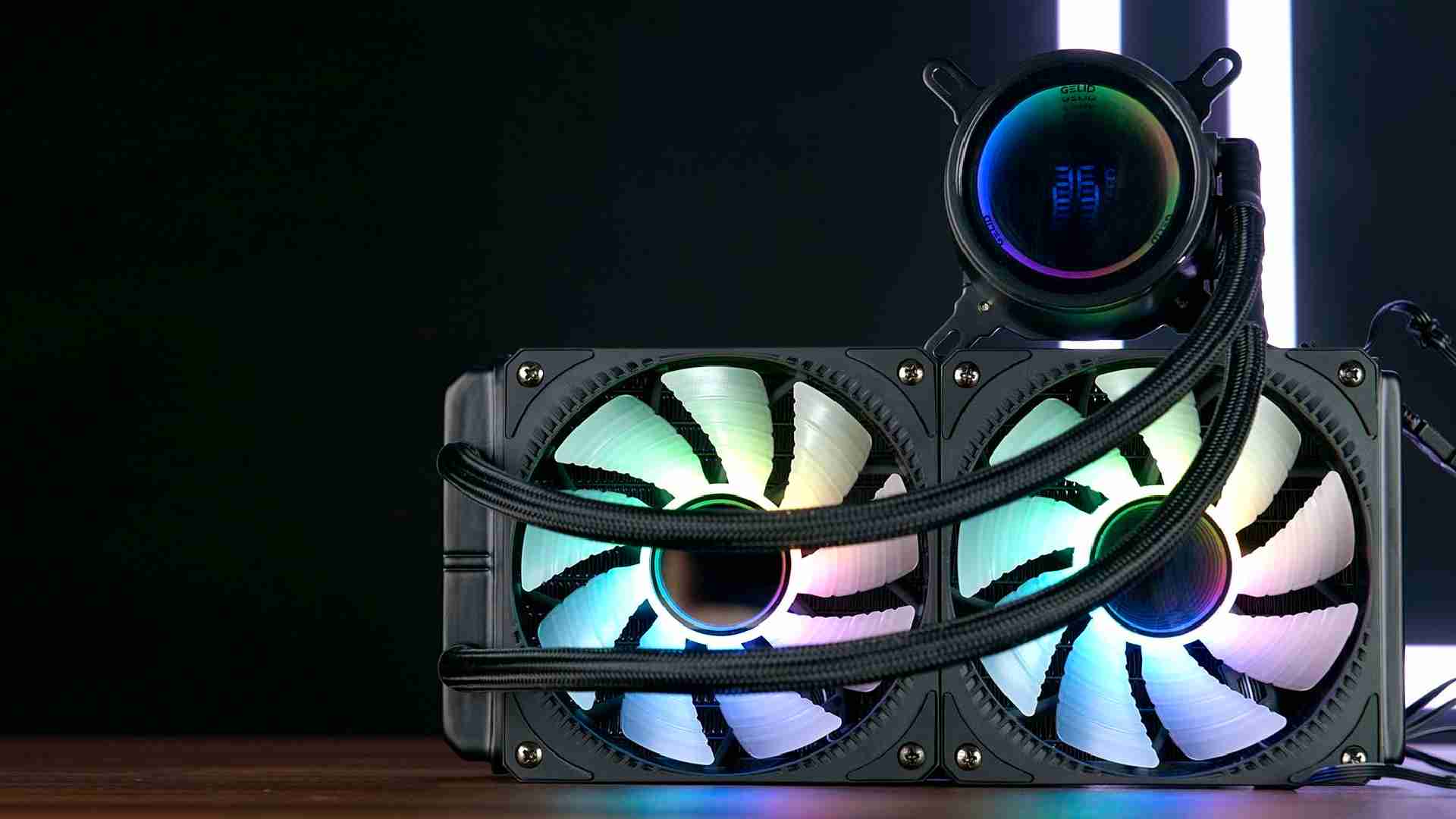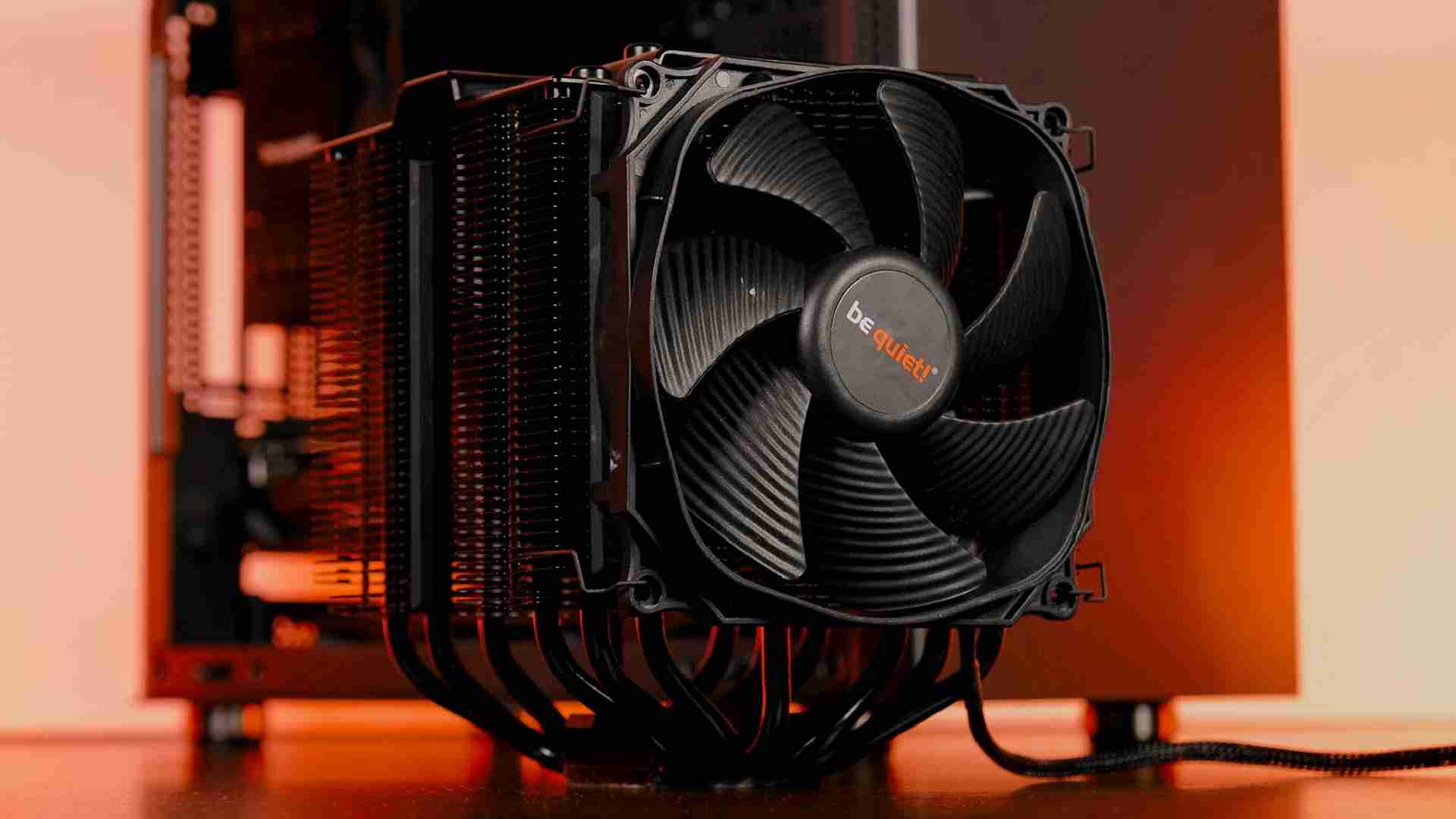Scythe Fuma 3
INTRODUCTION
With the new Scythe Fuma 3, Scythe just updated their Fuma 2 Rev.B to meet the newest performance standards! But is it really that much better? Or better at all? Let's take a closer look!
POSITIVE
- Solid Noise to Performance
- Solid Max Performance
- Very affordable
- Easy to install
- 100% Ram compatible
- Installable without removing the Fans
- Included PWM Splitter, Thermal Paste & Screwdriver
NEUTRAL
NEGATIVE
- Company Name is difficult to pronounce. Thank god this is a written review.
WHAT'S IN THE BOX?

In an all-Scythe fashion, the new Fuma 3 comes in a similar packaging like most Scythe coolers in recent years, a bit of imagery and some specs. Once everything is removed from the box, we will be left with the following items:
- Scythe Fuma 3 Heatsink
- Scythe Kaze Flex II Slim Fan
- Scythe Kaze Flex II Fan
- Installation Hardware AMD & Intel
- PWM Splitter
- Thermal Paste
- Screwdriver
- Manual
Down below you will also find a short summary of the coolers' specs:
| Name | Scythe Fuma 3 |
| Dimension | 138x128x154mm (DxWxH) |
| Fan | 120x15mm Scythe Kaze Flex II 120x25mm Scythe Kaze Flex II |
| Fan Airflow | < 39.44CFM <67.62CFM |
| Fan Connection | PWM |
| Fan Speed | < 1500 RPM |
| Fan Noise | < 23.8db < 24.6db |
| Fan Air Pressure | < 0.96mm/H2O < 1.5mm/H2O |
| Color |
Black White |
| RGB |
Center of the Fan |
| RGB Connection |
3-Pin ARGB |
| Ram Restriction | None |
| Extra | Auto RGB Feature using PWM |
COMPATIBILITY
As part of this update, Scythe updated their standardized Hyper Precision Mounting System to version 5. From a compatibility and usage point of view, we do not see any significant changes. The most notable change would be that the mounting brackets are now a straight piece of aluminum instead of having multiple edges and grooves. Down below you will find the full compatibility list:
| Intel | AMD |
| LGA1700 | AM5 |
| LGA1200 | AM4 |
| LGA115x | |
| LGA 2011-3 | |
| LGA 2066 |
INDIVIDUAL COMPONENTS
FAN
Compared to the Fuma 2 rev.B, the fans did not see any update at all.
In the center of the cooler, we still have Scythe's Kaze Flex II 25mm thick 120mm sized fan spinning at up to 1500RPM whilst pushing 67.62CFM at up to 1.5mm/H2O.
Attached to the right heatsink, the slim 15mm spinning at the same 1500RPM whilst pushing 39.44CFM at .96mm/H2O found another home.

Both fans can be controlled using a PWM connection and combined to use a single header by using the included PWM splitter.

Although there hasn't been any update regarding the fans, we do not see this as an issue. The fans previously used are still relatively new, perform quite well, and didn't cause any quality concerns. Therefore, as long as they are still able to squeeze more performance out of the updated cooler, they can be a perfect fit.
HEATSINK
The component that got the biggest update is definitely the heatsink.
Even if it is still a dual tower design with 6 heat pipes, almost everything about it is new.
Instead of a very spacious design, the new Fuma 3 is a lot denser providing the fans with 52FPI instead of the previous 49. The X-pattern of the fins is also gone, creating a straight block design.

In the bottom of the heatsink, we still have 6 heavily bent heat pipes that allow the right block to be pushed back enough to not create any RAM compatibility issues whatsoever.

Although the cooler remains 154mm high, the sizes of each tower have changed. While the right (thin) heatsink sink became thinner, the left one got substantially thicker creating more overall fin area.
We attribute this change to the denser heatsink. Although the 15mm thick fan might have been strong enough to push the air through the old Fuma 2 spacious design, it might have not been enough to get through the new and denser heatsink. Hence the re-distribution.
BASE

Another quickly missed change is the nickel-plated copper heatsink. Although the design remains the same, the base is now slightly wider, creating more contact area for both the CPU and heat pipes.
APPEARANCE
Design-wise, the Fuma 3 looks like a Fuma 2, but in the design of Scythe's recently released Kotetsu Mark 3. Similarly to the Kotetsu re-design, we have a blocky-looking dual tower design with 2 plastic covers hiding the top fins.

Usually, we are not the biggest fans of covers added to coolers due to the added noise potential that they create. However, similarly to the Kotetsu, Scythe made sure to add additional slits on the inner side of the covers to allow the air to travel through them instead of hitting them resulting in noise.

Overall, we are quite happy with the re-design. The Fuma 3 still looks powerful while remaining simple and easy to integrate into existing builds.
The two plastic covers on the top add to the simplistic design by being painted in a Matt-Black finish with two Scythe Logos stamped into each of them at the very center.
BENCHMARK
We benchmarked the cooler using our new CPU Cooler Benchmark Machine featuring 3 different Workloads at 320, 250, and 120W. For the Scythe Fuma 3, the 120W and 250W workloads apply as the cooler was unable to keep the CPU below Thermal Throttling once the 320W mode was being used. But that shouldn't be counted as a negative as there has not been a single air cooler capable of keeping up 320W permanently.
120W

Allowing the Scythe Fuma 3's fans to spin at their max speed at 120W kept the CPU at 35.2°C above ambient. Being 1°C colder than the Fuma 2, the update from Fuma 2 to Fuma 3 seems to have been fruitful.

After slowly lowering the fan speed in 10% steps, we were able to observe that this performance benefit applies all across the board. From start to finish, the Fuma 3 was slightly in front of the Fuma 2.
250W

Upping the workload to a staggering 250W showed that the difference between the Fuma 2 and Fuma 3 is substantially bigger once the workload becomes higher. At 68.2°C, the Fuma 3 managed to land in between the Arctic Liquid Freezer II 240 and Gamdias Boreas P1.
Compared to the last-gen Fuma 2 rev.B, the difference has now become 3.8°C, a difference truly worthy to be called an update.

On the Noise-to-Performance graph, the Fuma 3 is now capable of creating a real line, something that the Fuma 2 was barely capable of doing.
Although the difference to the Fuma 2 is substantial at this wattage, the Fuma 3 is still quite behind the iconic Noctua NH-D15.
CONCLUSION

Concentrating solely on the Benchmarks, the Fuma 3 is definitely a worthy successor to the Fuma 2 rev.B. Whilst running a lower workload, the difference between a Fuma 2 and 3 might be small, but once the heat is turned up, the Fuma 3's superiority becomes bigger and bigger.
Overall, the Fuma 3's performance is solid. It might not be the Noctua NH-D15 killer, but compared to other dual tower air coolers, it is solid to say the least, especially its noise-to-performance ratio.

Design-wise, the Fuma 3 makes a solid impression. It looks clean, and powerful, while the new plastic covers keep the design modest while keeping it modern.
But one of the most important aspects of the Fuma 3 is the price. Currently (27/09/23), we are able to get a Fuma 3 for as little as 52€, a price which is incredibly hard to beat.

As a whole, we are very happy with the changes Scythe implemented for the Fuma 3 compared to the older version. The performance was upgraded, and the design was refreshed to 2023 standards. Definitely the type of updates we like to see.
Due to the Fuma 3's solid performance paired with its excellent price, are can absolutely recommend the cooler for combinations up to Ryzen 7 or Intel I7 (7800X3D/13700K)


Gelid Liquid 240 Review
Although the Gelid Liquid 120 did not perform exceptionally well, this might have been caused by the form factor alone. Lets
Read More
Scythe Mugen 5 Rev. C Review
The Scythe Mugen 5 seems to be the ultimate cooler! Dual-tower-like performance in a surprisingly low build height. Added to
Read More
Be Quiet! Dark Rock Pro 4 Review
Be Quiet! released quite a lot of impressive CPU Coolers. Their biggest and supposedly best is the Dual Tower, Dual Fan, Be Q
Read More
Noctua NH-P1 Review
Noctua has been known to develop some of the best air coolers of the last decade. But one of the reasons they were able to st
Read More